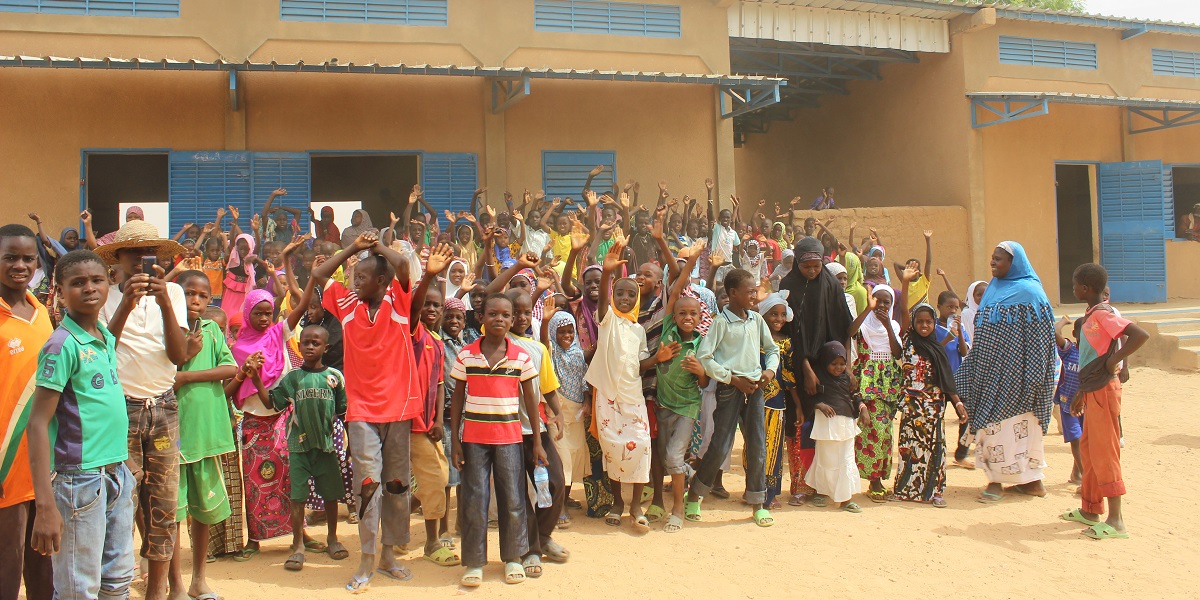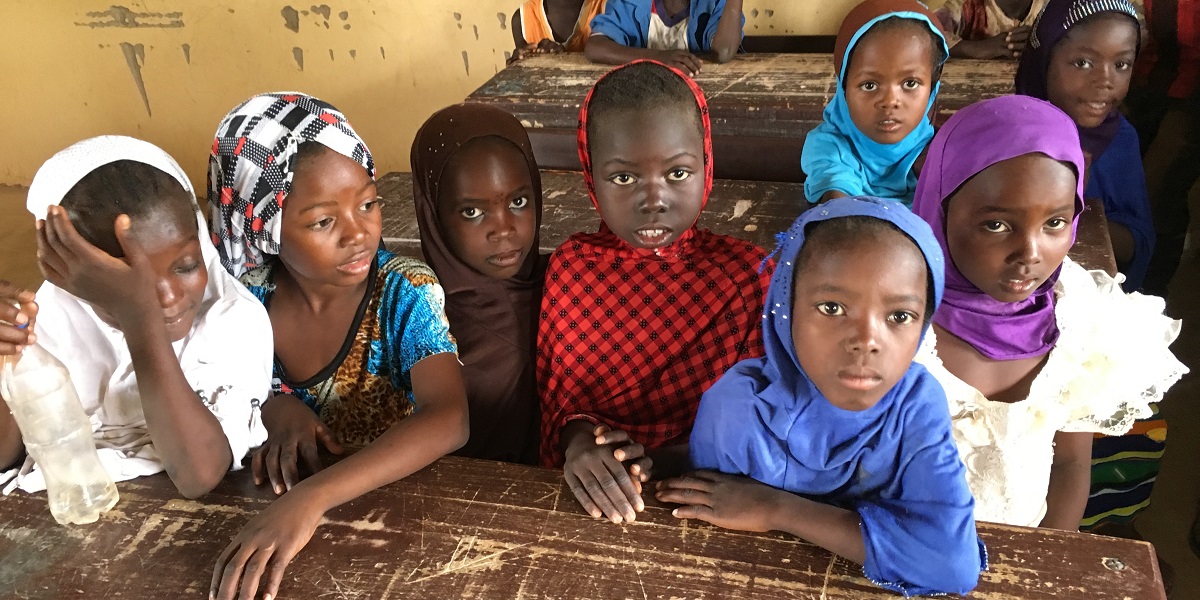MCC’s investment in school infrastructure in Niger helped improve academic outcomes, especially among girls, according to a new impact evaluation by Mathematica Policy Research.
Mathematica found that MCC’s IMAGINE (IMprove the educAtion of Girls in NigEr) project in Niger raised primary school enrollment and attendance for children ages 6 to 14. Children living in villages with IMAGINE schools were 8.3 percentage points more likely to report having enrolled in school during the prior school year (2012–2013) and 7.9 percentage points less likely to report being absent more than two consecutive weeks than those living in comparison villages. Seventy-two percent of girls were enrolled in primary school in villages with IMAGINE schools, which is 11.8 percentage points higher than in comparison villages. The evaluation also revealed that IMAGINE schools had more classrooms, more finished classrooms and higher quality classrooms than schools in comparison villages.

Matt Sloan/Mathematica
IMAGINE schools constructed as part of MCC’s $16.9 million Niger Threshold Program, such as this one in the Tillaberi Region of the country, were built using finished materials like concrete, and featured on-site housing for female teachers and separate bathrooms for girls and boys — all of which led to improved academic outcomes for girls.
The IMAGINE project was part of MCC’s $16.9 million Niger Threshold Program, and the investments covered by the evaluation were completed prior to December 2009. As part of the IMAGINE project, MCC invested in school construction using finished materials such as concrete, on-site housing for female teachers, and separate bathrooms for girls and boys. The project also included complementary activities like the provision of textbooks. The MCC-funded program was supervised by the U.S. Agency for International Development (USAID) and implemented by child rights organization Plan International in collaboration with Volontaires pour l’Integration Educative and Aide et Action. Data collection was conducted approximately three years after school construction was completed.

Matt Sloan/Mathematica
According to a recent impact evaluation by Mathematica Policy Research, girls attending MCC-funded IMAGINE schools in Niger had higher enrollment rates, lower absenteeism rates, and higher math and French test scores than those in schools in comparison villages.
The U.S. Government, recognizing the importance of supporting girls’ education in Niger, continued its engagement through the Niger Education and Community Strengthening (NECS) project, supervised by USAID and implemented by Plan International. The NECS project continued and complemented investments begun under the IMAGINE project and is the subject of a separate impact evaluation, with the final evaluation report expected in 2017.
Building upon the strong partnership developed under the threshold program, MCC has signed a $437 million compact with Niger designed to strengthen the country’s agricultural sector by improving water availability, infrastructure and market access.
On September 22, in honor of the 71st session of the United Nations General Assembly, MCC joined with partners to co-host an event in New York City to celebrate the recently signed Niger Compact and discuss the importance of food security and the continued need for inclusive growth. The celebration included a conversation between Nigerien President Mahamadou Issoufou and MCC CEO Dana J. Hyde.
This post draws on an article and issue brief that originally appeared on Mathematica’s website.

